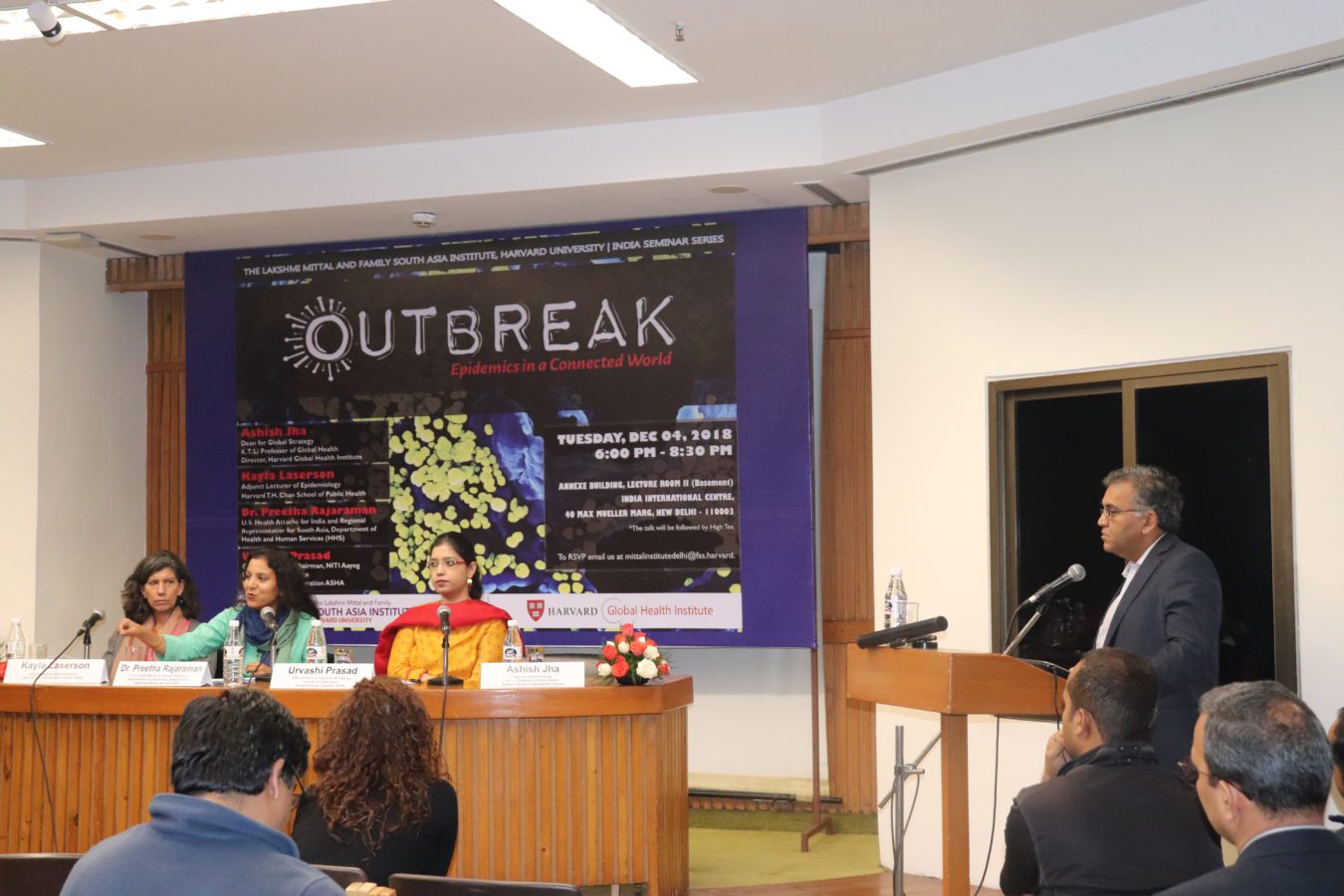 “Outbreak: Epidemics in a Connected World”, an event jointly organized by The Lakshmi Mittal and Family South Asia Institute and the Harvard Global Health Institute and presented in New Delhi, examined the connections between human, animal and environmental health, and the response to disease outbreaks in India.
“Outbreak: Epidemics in a Connected World”, an event jointly organized by The Lakshmi Mittal and Family South Asia Institute and the Harvard Global Health Institute and presented in New Delhi, examined the connections between human, animal and environmental health, and the response to disease outbreaks in India.
The panelists included eminent public health scholars and practitioners, including Ashish Jha, KT Li Professor of Global Health at the Harvard TH Chan School of Public Health, and Director, Harvard Global Health Institute, Kayla Laserson, Lecturer of Epidemiology, Harvard TH Chan School of Public Health and Director, CDC India, Preetha Rajaraman, US Health Attache for India and Regional Representative for South Asia, Department of Health and Human Services, and Urvashi Prasad, Office of the Vice Chairman, NITI Aayog.
Rajaraman discussed the transnational scope of epidemics and disease outbreaks, and how the US government is collaborating with India to prepare for and prevent disease, and provide surveillance and disease control programs. Laserson talked about training EIS (Epidemic Intelligence Service) officers to investigate and identify a public health outbreak, implement control measures on the ground and collect research to inform preventive measures.
She recalled an example of an outbreak that occurred during the lychee harvest season in Muzaffarpur, Bihar, where children started to suffer from seizures and an altered mental state with no apparent cause. The CDC pathogen discovery lab did not find an infectious pathogen to connect to this strange outbreak; however, the EIS workers, after much research, found that a toxin in lychees causes hypoglycemia, which can be fatal if the child does not have enough to eat.
Prasad emphasized the need to make India’s central and state public health systems much stronger than they are. Most the of Center’s health budget goes to curative care instead of prevention and public health, but India cannot afford to rely on medical professionals. There is an acute need for a public health workforce to better manage health systems.
Prof Ashish Jha moderated a conversation that included discussion about India’s preparedness for disease outbreak, the AAYUSH healthcare system, engagement with non-traditional partners, the need for focus on public health and the private sector’s responsibilities. The Mittal Institute will continue to engage in dialogues on public health in India and provide spaces for furthers conversations through such forums.
